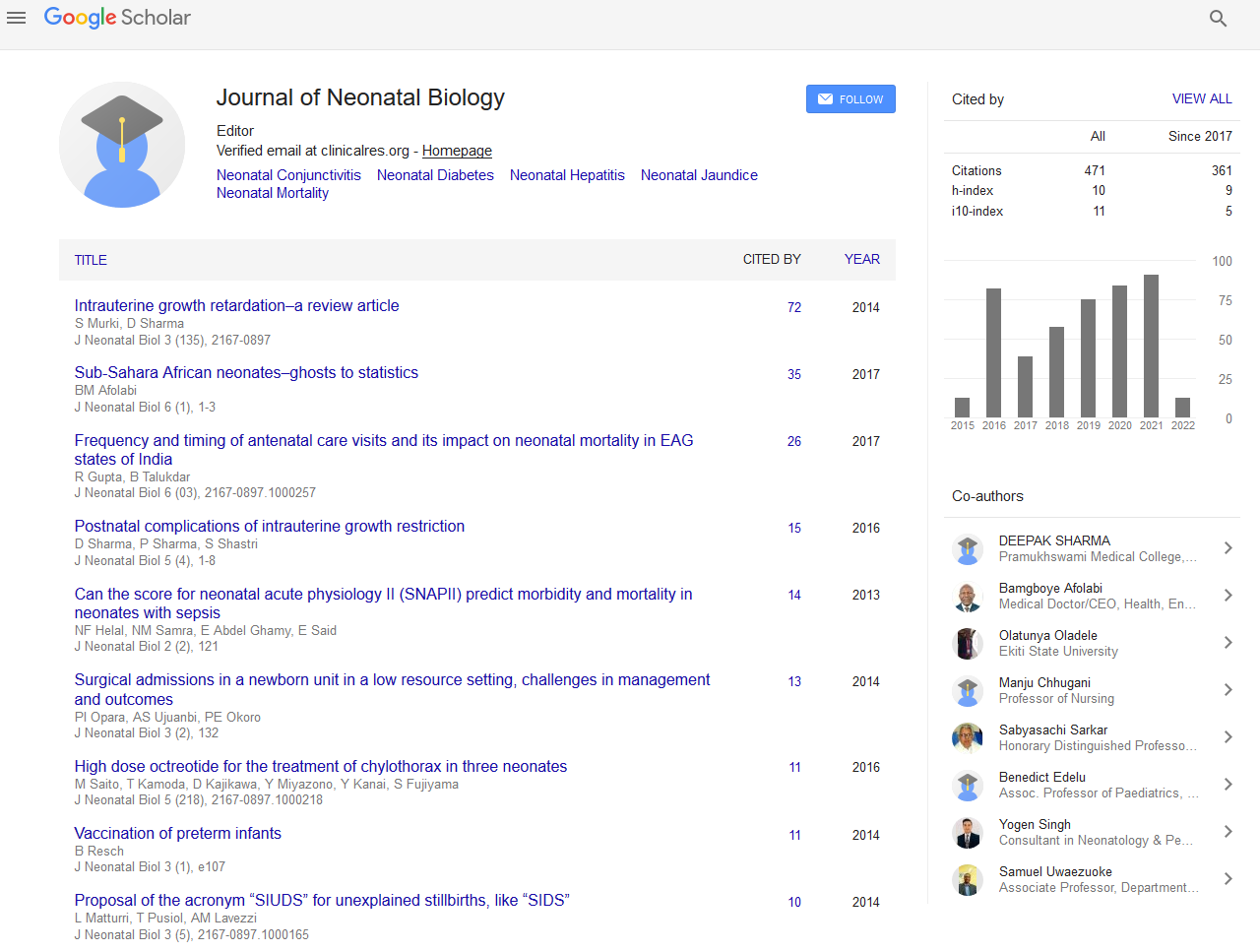PMC/PubMed Indexed Articles
Indexed In
- Genamics JournalSeek
- RefSeek
- Hamdard University
- EBSCO A-Z
- OCLC- WorldCat
- Publons
- Geneva Foundation for Medical Education and Research
- Euro Pub
- Google Scholar
Useful Links
Share This Page
Journal Flyer

Open Access Journals
- Agri and Aquaculture
- Biochemistry
- Bioinformatics & Systems Biology
- Business & Management
- Chemistry
- Clinical Sciences
- Engineering
- Food & Nutrition
- General Science
- Genetics & Molecular Biology
- Immunology & Microbiology
- Medical Sciences
- Neuroscience & Psychology
- Nursing & Health Care
- Pharmaceutical Sciences
Abstract
Maternal Nutrition with ÃŽÂ’-Hydroxy-ÃŽÂ’ Methylbutyrate as Strong Determinants of the Development of Newborn Offspring in Pigs
Ewa Tomaszewska, Piotr Dobrowolski, Monika Hulas-Stasiak and Agnieszka Tomczyk
Aim: Interferences into maternal nutrient are used in studies related to prenatal programming - permanent changes in homeostasis of regulatory physiological mechanisms. Thus, the effect of HMB (β-Hydroxy-β-methylbutyrate) maternal administration on body characteristic in newborn offspring was studied. Methods: Sows were fed with a standard diet and diet supplemented with HMB (0.2 mg/kg of body weight/ every day) in the morning meals from 70th to 90th day of gestation. Twenty four newborn piglets were weight and euthanized, organ weights were recorded. Moreover, changes in the somatotropin axis were assessed by determination of insulinlike growth factor 1.
Results: Maternal HMB supplementation significantly affected weight at birth. The weight of the liver was increased by 160% in the HMB piglets (P < 0.01) compared with Cont piglets, and the spleen was 67% heavier in HMB piglets (P < 0.01). The weight of the kidneys, lungs, heart and stomach was increased for the HMB piglets by 55%, 115%, 56% and 63%; whereas the weights of brain not affected by HMB supplementation. The concentration of IGF 1 also increased after maternal HMB supplementation (by 214%).
Conclusion: The study showed that maternal HMB supplementation in middle gestation had marked effects on characteristics of the newborn offspring.


